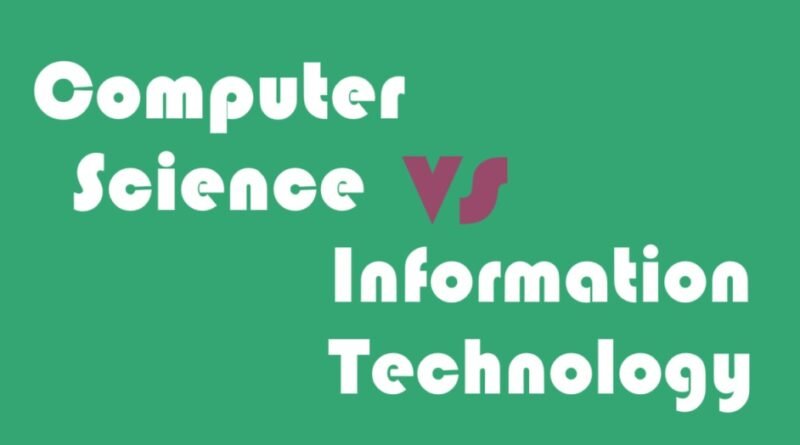Computer Science vs. Information Technology: What’s the Difference?
When choosing a career path in the ever-expanding tech industry, many students and professionals often face the dilemma of selecting between Computer Science (CS) and Information Technology (IT). While both fields are intertwined and share some similarities, they also have distinct characteristics, job roles, and areas of focus. This article dives deep into the differences between Computer Science and Information Technology, helping you understand which field aligns best with your interests and career aspirations.
What is Computer Science?
Computer Science is a branch of study that focuses on the theoretical foundations of computation, algorithms, programming, and the design of hardware and software systems. It involves creating and optimizing solutions for complex computational problems. Computer scientists develop new technologies and innovate existing systems by applying mathematical concepts and logical thinking.
Key Areas in Computer Science:
- Programming Languages: Understanding and using languages like Python, Java, C++, and more.
- Algorithms and Data Structures: Designing efficient algorithms to solve problems.
- Artificial Intelligence and Machine Learning: Building intelligent systems and predictive models.
- Cybersecurity: Protecting systems from digital threats.
- Computer Architecture: Designing and optimizing hardware components.
- Software Development: Creating applications and systems software.
- Theoretical Computing: Studying computational theories like automata and formal languages.
Career Opportunities in Computer Science:
- Software Developer
- Data Scientist
- AI/ML Engineer
- Systems Analyst
- Cybersecurity Specialist
- Game Developer
- Research Scientist
What is Information Technology?
Information Technology, on the other hand, focuses on the application of technology to meet the needs of businesses and organizations. IT professionals are responsible for managing, maintaining, and securing an organization’s technological infrastructure, ensuring smooth operation and user accessibility.
Key Areas in Information Technology:
- Network Administration: Managing and maintaining network systems.
- Database Management: Organizing and storing data efficiently.
- System Administration: Ensuring the smooth functioning of operating systems and hardware.
- IT Support and Services: Providing technical assistance to users.
- Cloud Computing: Implementing and managing cloud-based solutions.
- Cybersecurity: Protecting organizational data from cyber threats.
- Enterprise Systems: Managing large-scale software systems used by businesses.
Career Opportunities in Information Technology:
- Network Administrator
- IT Support Specialist
- Database Administrator
- Cloud Solutions Architect
- IT Manager
- System Administrator
- Security Analyst
Key Differences Between Computer Science and Information Technology (CS vs IT)
| Aspect | Computer Science | Information Technology |
|---|---|---|
| Focus | Theoretical and developmental aspects of computing. | Practical application of technology in business and organizations. |
| Core Skills | Programming, algorithms, AI, and software development. | Network management, system administration, and IT support. |
| Job Roles | Software developers, AI engineers, data scientists. | IT administrators, support specialists, cybersecurity analysts. |
| Educational Path | Involves deep mathematics, coding, and theoretical concepts. | Focuses on practical IT skills and system management. |
| Goal | Innovating and developing new technology. | Implementing and maintaining technology solutions. |
| Industries | Research, software firms, and academia. | Business, healthcare, finance, and government. |
Which Should You Choose?
Choose Computer Science if:
- You enjoy coding, problem-solving, and mathematics.
- You are interested in creating software, AI systems, or new technologies.
- You want to pursue a career in development, data science, or research.
Choose Information Technology if:
- You prefer working with existing systems and optimizing them.
- You want a practical, hands-on career in network management or IT support.
- You aim to work in industries like finance, healthcare, or corporate IT.
Conclusion
Both Computer Science and Information Technology offer exciting career opportunities in the tech world. While Computer Science focuses on innovation and theoretical aspects, Information Technology emphasizes the application of technology in real-world scenarios. Understanding your interests, skills, and career goals can help you decide which path is best suited for you.
Whether you’re a problem-solving enthusiast or a practical implementer, the tech industry has a place for you. Take the time to explore your options, and remember that continuous learning is key to thriving in either field.

